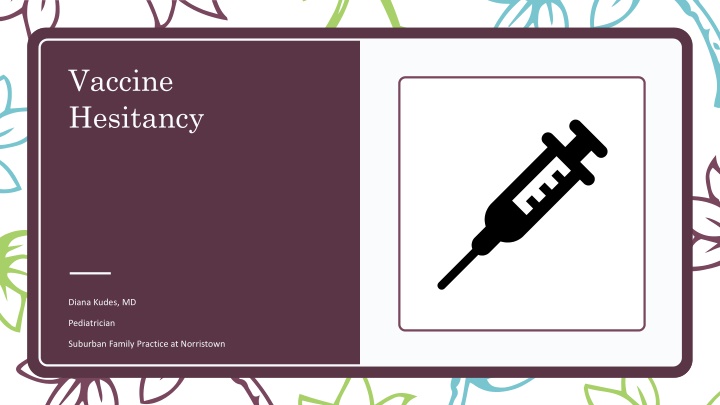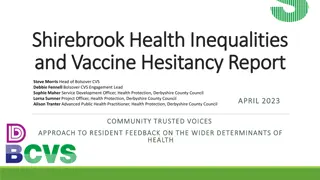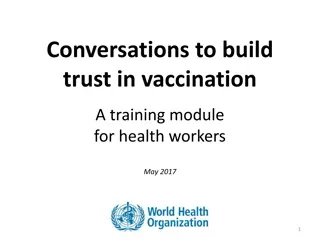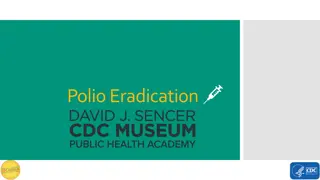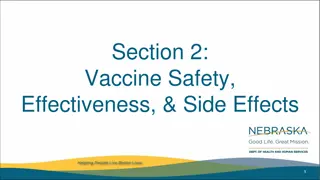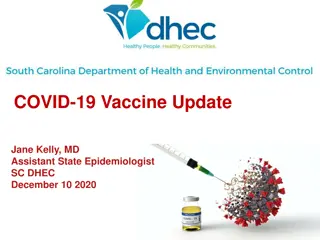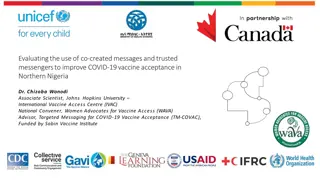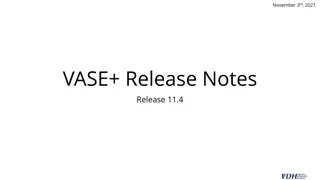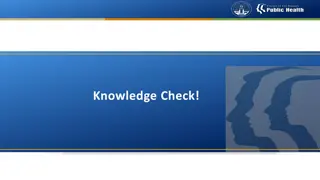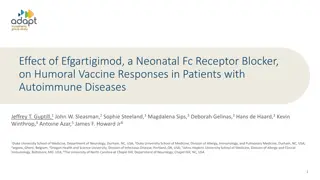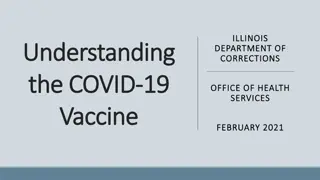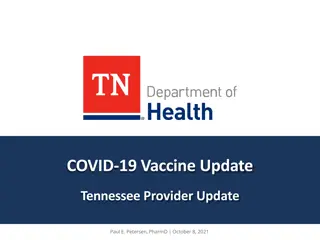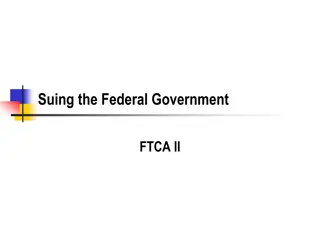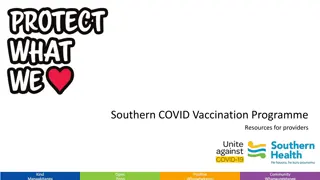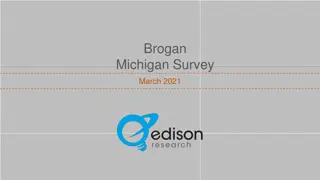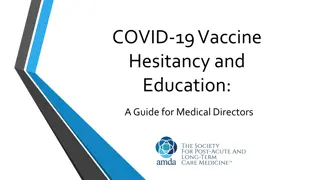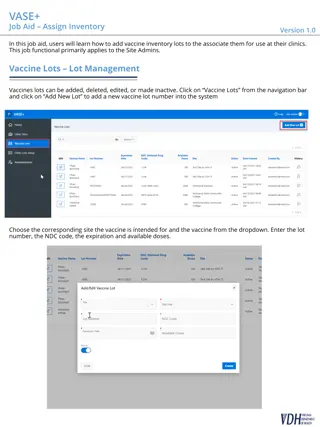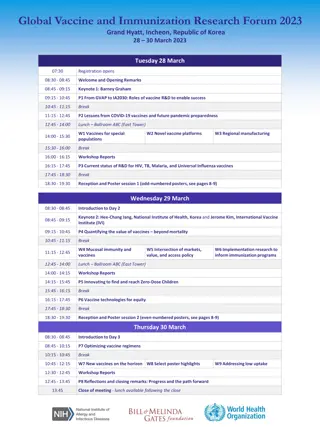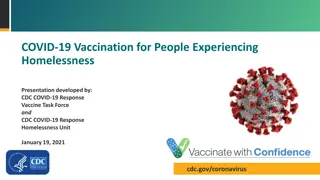Vaccine Hesitancy: Factors and Solutions
Vaccine hesitancy is a significant concern driven by various factors like religious beliefs, safety concerns, and lack of trust. Parents' worries and refusals affect vaccination rates, but strategies such as engagement with healthcare providers can help overcome hesitancy. While some methods may not effectively increase vaccine acceptance, mandatory school vaccines and positive provider engagement are key to addressing this issue.
Download Presentation

Please find below an Image/Link to download the presentation.
The content on the website is provided AS IS for your information and personal use only. It may not be sold, licensed, or shared on other websites without obtaining consent from the author.If you encounter any issues during the download, it is possible that the publisher has removed the file from their server.
You are allowed to download the files provided on this website for personal or commercial use, subject to the condition that they are used lawfully. All files are the property of their respective owners.
The content on the website is provided AS IS for your information and personal use only. It may not be sold, licensed, or shared on other websites without obtaining consent from the author.
E N D
Presentation Transcript
Vaccine Hesitancy Diana Kudes, MD Pediatrician Suburban Family Practice at Norristown
Decreasing vaccination rates A national survey in 2010 of parents with children under 2yr found These numbers are much higher in certain communities. Especially states that have laws allowing more exemptions. - 3% refused all vaccines -19.4% had refused or delayed at least 1 recommended vaccine.
Vaccine hesitancy Term to describe the range of feelings parents have about vaccine concerns. The World Health Organization defines it as a behavior, influenced by a number of factors including issues of confidence (do not trust a vaccine or provider), complacency (do not perceive a need for a vaccine or do not value the vaccine), and convenience (access).
Why are parents worried about vaccinations or refuse them Religious Reasons Personal or Philosophical Reasons Safety Concerns Need More Information Lack of Trust
Who Is Most Likely To Refuse Vaccines Parents living in states with philosophical exemptions from mandatory vaccines. Highly educated white families.
What probably doesnt work to increase vaccine acceptance: Studies looking at web based interventions that educate parents about vaccines have not been found to be effective. Social media campaigns tend to only reinforce already held positions. Epidemics of a vaccine preventable disease used to help increase vaccine acceptance but has not been seen in some recent outbreaks.
Things that may help 1 2 3 Surveys of parents have found 80% say their primary care provider positively influenced the decision to get vaccines. Different studies have found 30-47% of vaccine hesitant parents agreed to vaccinate if they were engaged in discussions with their provider. Mandatory vaccines for school with only medical exemptions.
How do we communicate with parents? The 2013 study in Pediatrics by Opel et al found providers that present vaccines with a presumption the parents will be getting them for the child have higher rates of acceptance than those who present it as a shared decision. The provider needs to explain that vaccines work; they are safe; they protect children from horrible diseases that they can get if not protected. Conversations should be nonconfrontational. Parents concerns need to acknowledged and addressed.
How To Present Information Just providing scientific data is probably not enough. More effective if you have a trusting relationship with the family. Stories and personal examples are usually more effective than quoting statistics. Sharing with families your decision to immunize family members can convey your comfort with the vaccine. Motivational interviewing may be effective but has not been studied. Use principle of the 3 As: Ask, Acknowledge and Advise.
Policy The American Medical Association, American Academy of Pediatrics, and Infectious Disease Society of America believe that all nonmedical exemptions for vaccines should be eliminated.
References Edwards K, Hackell J. Countering Vaccine Hesitancy. AAP The Committee on Infectious Diseases. Pediatrics. 2016; 138(3):e20162146 LaSalle G. When the answer to vaccines is No . The Journal of Family Practice. June 2018; 67:348-363. McKee C, Bohannon K. Exploring the Reasons Behind Refusal of Vaccines. J Pediatr Pharmocol Ther. 2016 Mar-Apr; 21(2)104-109. Opel D, Heritage J et al. The Architecture of Provider-Parent Vaccine Discussions at Health Supervision Visits. Pediatrics 2013; 132:2013-2037.
